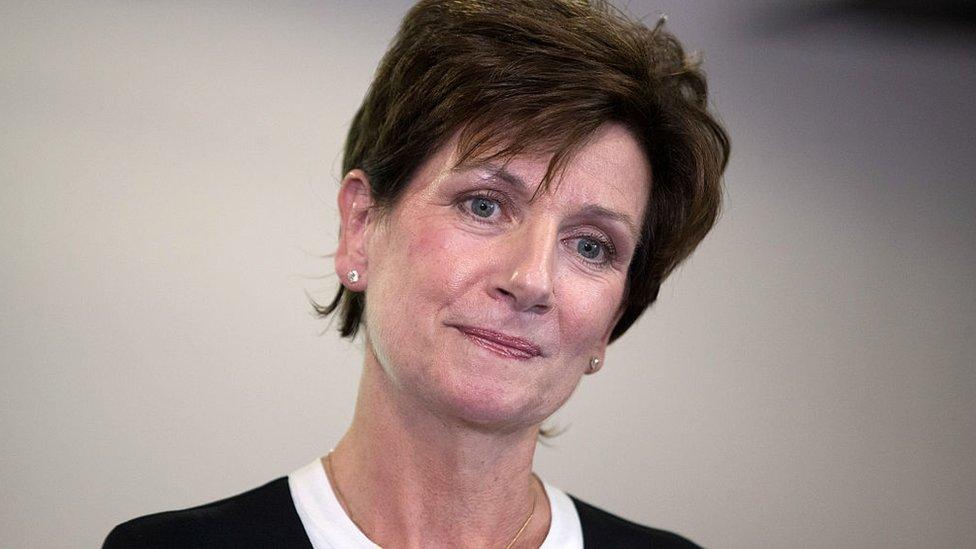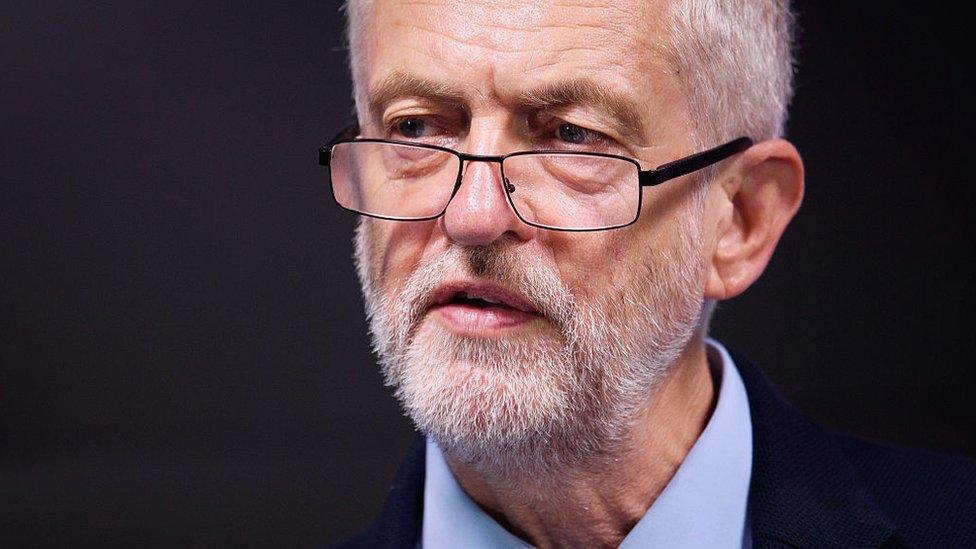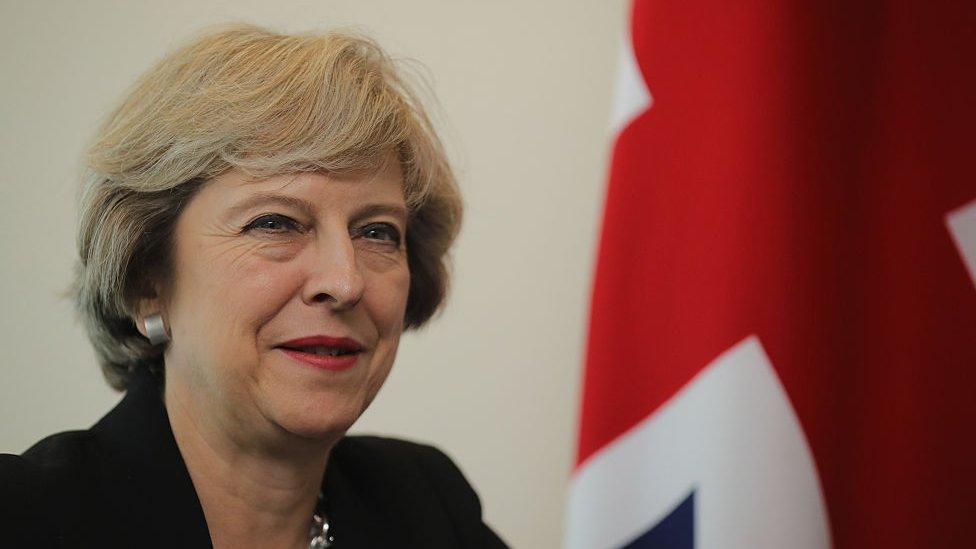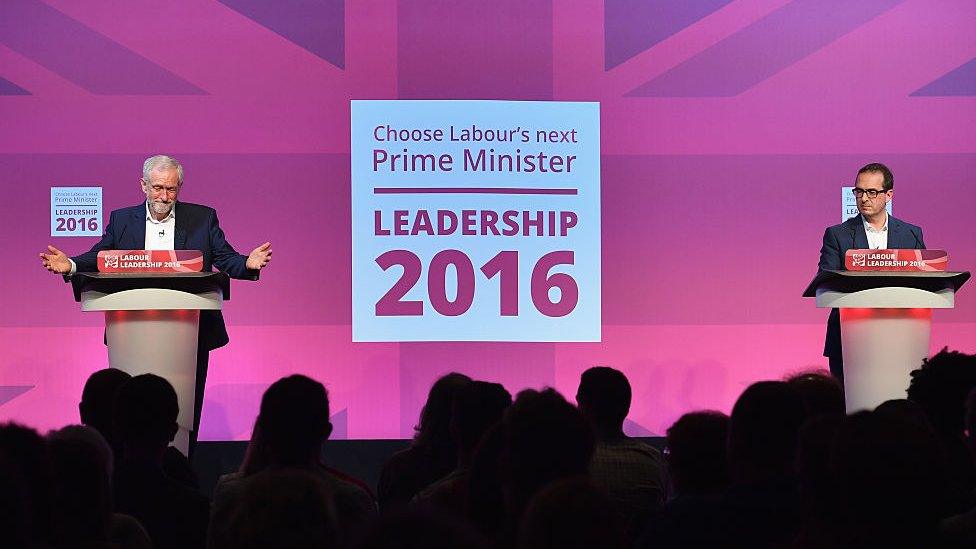Another week, another party leadership election result
- Published

Diane James told the Prime Minister: 'We're the opposition-in-waiting now."
"It's so hard to keep up with all these leadership elections, isn't it?"
Not exactly the most profound observation I've ever come up with, but it did seem the most appropriate way of filling the final couple of seconds before the 'hand back' to Andrew Neil at the end of the Midlands part of last weekend's Sunday Politics on BBC One.
I had just just been explaining that our programme next Sunday would be reporting live from the Labour Party Conference in Liverpool following their leadership election result, and that I was also hoping to talk to the newly-elected UKIP leader.
It reminds me of the old joke about buses: you spend ages waiting for a leadership election and then two come along at once.
And then I realise that this coincidence of timing is not the only thing they have in common.
Diane James's overwhelming victory in UKIP's leadership contest had looked for weeks like a foregone conclusion.

Jeremy Corbyn appears to be on course for a victory on Saturday
So it wasn't exactly a bolt from the blue when her thumping majority was confirmed at nearly 8,500.
And even though I am fully aware that politics has a habit of confounding expectations these days, Jeremy Corbyn appears to be on course for an even more emphatic victory when his election, or re-election, as party leader is declared on Saturday.
So, two party leaders with very strong mandates.
But that's not where the resemblance ends.
In her victory speech, Ms James had a very direct message for another of our recently-elected party leaders: "Mrs May, we're the opposition-in-waiting now."
This was equally clearly aimed at the current opposition leader.

Who will be Theresa May's real opposition leader - Jeremy Corbyn or Diane James?
It means UKIP and Labour will both have their tanks in the same electoral battlegrounds: traditional 'core' Labour-voting areas where the party's call for a Remain vote went so decisively unheeded.
Places like Stoke-on-Trent which voted Brexit by 69%, or the Black Country, where UKIP have eight councillors in their Dudley power base; among them the MEP Bill Etheridge, who finished a respectable third in that leadership election, with over 2,000 votes.
During the campaign he criticised Ms James for refusing to join him in debating the issues.
This is where the similarities between the two parties end, because Messrs Corbyn and Smith could never be accused of avoiding the arguments.
Over the summer, they toured the country in a series of bruising hustings events, where the party's tensions were paraded before the cameras.
In Solihull last month I watched them trading blows over Europe (Mr Smith says we should fight Brexit, Mr Corbyn says we should accept it) and unilateral nuclear disarmament (Mr Corbyn is for it, Mr Smith is emphatically not).
But the 'stand out' moment for me came even before the debate itself had got under way.

Mr Corbyn and his rival Owen Smith have toured the country, holding a series of heated hustings
Arriving unexpectedly early, Mr Corbyn marched straight into the conference centre to be treated to a ringing denunciation of his leadership by the Birmingham Erdington MP, Jack Dromey.
On this evidence, if Mr Corbyn is right about Theresa May going back on her pledge not to call a snap election next spring, his party would clearly have its work cut out healing its divisions in time to be campaign-ready.
As I promised last weekend, our programme will indeed be reporting live from the Labour Party conference in Liverpool, where our political reporter James Bovill will gauge the reactions of Midlands activists to the leadership election result.
And yes, also as promised, I shall also be talking to UKIP's new leader Diane James, about how she plans to win the support of voters in those key Midlands seats.
I hope you will join us for Sunday Politics Midlands in our usual 11:00 slot on BBC One Midlands this Sunday, 25 September.
Correction 3 October 2016: This page has been amended to correct the percentage given for those in Stoke-on-Trent who voted to leave the European Union.